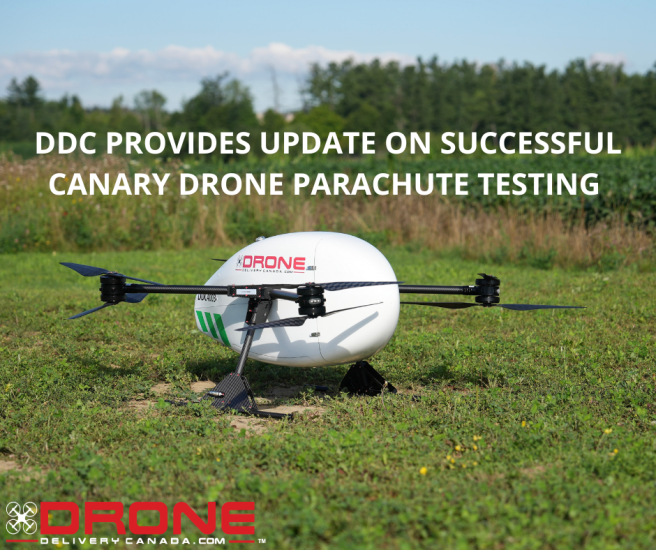Drone Delivery Canada (DDC) has released further results concerning parachute testing and developed of the Canary drone. Since January 2022, the company has been testing its Canary drone with full autonomous missions and expanded flight envelope including the parachute validation testing.
The drone successfully passed the parachute safety system air-deployment test as well as the automated motor safety shut-off. Moreover, the team pushed the Canary up to 5,900ft ASL with full payload of 4.5kg to validate performance including the demonstration of its stability, fidelity and reliability. Additionally, the team tested the drone for cold and hot weathers forcing it to perform at -35 degrees Celsius and +50 degrees Celsius. Finally, the team flew the drone at a maximum range of 21km to ensure the validity of the drone’s range and payload capabilities. DDC’s engineers have a drop test program to conduct and the completion of the parachute flight test program, following which DDC will submit its declaration to Transport Canada that will enable the Canary to fly over people.
“The team has made incredible progress with the flight test program and validation to bring to market a drone to enable flights over people. A drone like the Canary, with a weight-class of under 55lbs (25kg), will bring new opportunities and use cases for the healthcare sector as well as the retail environment (i.e., residential deliveries at scale). Being able to address these vertical markets with our award-winning solution is part of our strategic roadmap and is expected to open underserved markets,” said Steve Magirias, CEO of DDC.
The Company is also working towards the further development of detect-and-avoid (DAA) systems, which are intended to facilitate BVLOS operations, reduce operational costs and provide a robust solution to meet the demands of all our prospective customers.
For more information visit:




